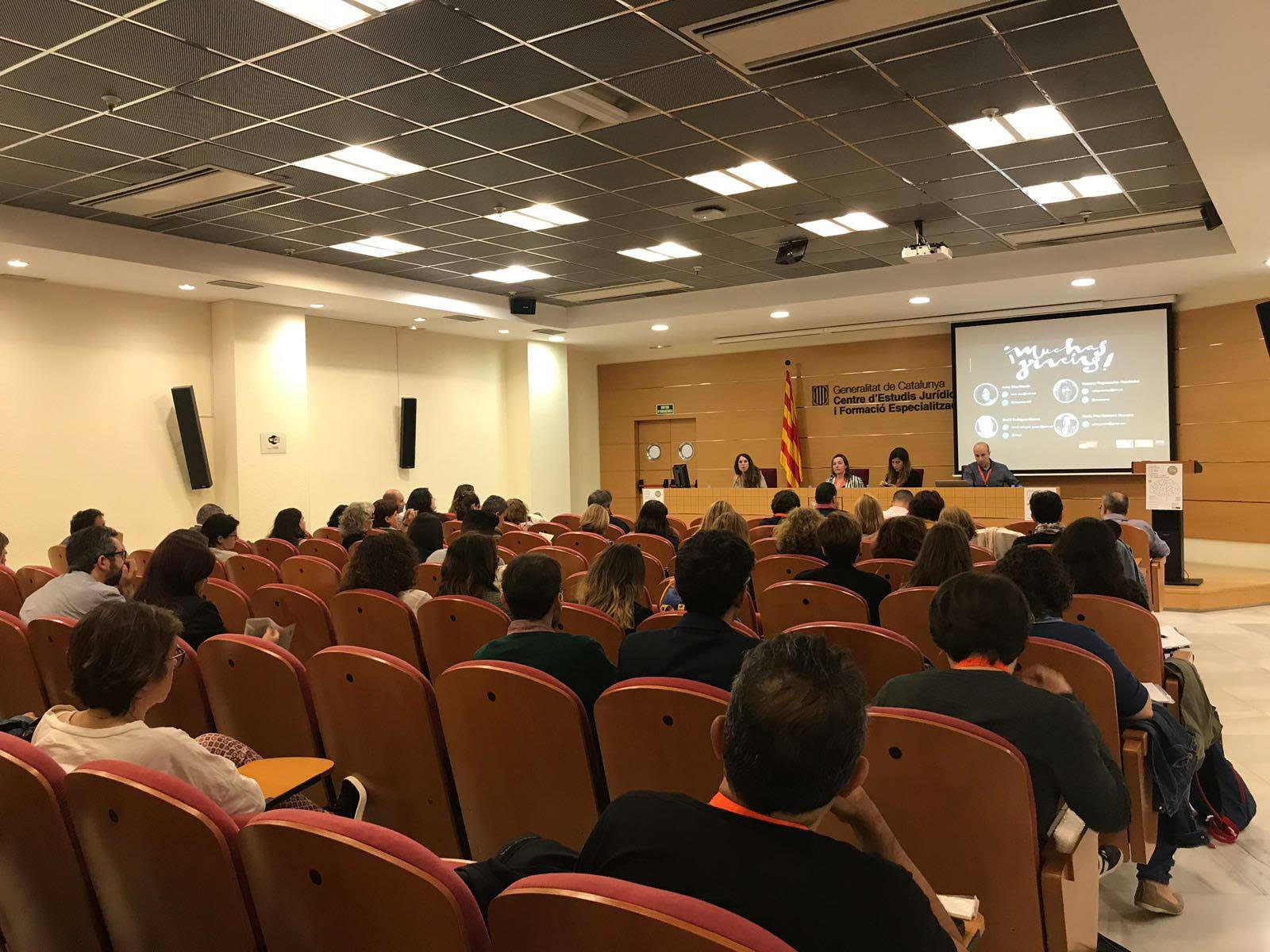SYMPOSIUMS

The concept Gender mainstreaming is the most important legacy of the IV World Conference on Women (Beijing, 1995).
Gender mainstreaming refers to the fact that the gender perspective must permeate all public policies and actions, as well as the entire public administration. Gender mainstreaming starts from the recognition that public policies are androcentric and, therefore, are mechanisms for reproducing inequality.
Since Beijing, it has been possible to elevate the normative and operational status of gender equality policies, providing mandatory structures and specific instruments, but in practice, the degree of implementation is uneven and limited. The focus has been on developing technical processes that have applied work mechanisms to develop gender mainstreaming (non-sexist language, parity, gender reports,…). However, gender mainstreaming requires a structural change, political commitment, and networked work that brings together spaces for horizontal coordination and cooperation, and the establishment of shared strategic objectives.
It is necessary to continue working to build a change in the institutional culture in which the various political and technical parts incorporate challenges that are not part of their usual mission or competencies. It requires an integral vision that includes equality as a core element and that this notion translates into the daily administrative dynamics, assuming that the gender perspective is an indicator of greater quality and effectiveness of public intervention for feminist social transformation, and, ultimately, it is a matter of rights.
In this line, four initiatives developed at the Center for Legal Studies and Specialized Training (CEJFE) of the Department of Justice and Democratic Quality are presented, through the Catalan Observatory of Justice in Gender Violence (OCJVM), and the General Directorate for the Eradication of Gender Violence of the Department of Equality and Feminism.
Coordination: M.Àngels Gensana Riera (Observatori Català de la Justícia en Violència Masclista)
Speakers: Alejandro Sánchez Sicilia (CEJFE), Marta Blanch Serentill (Departament de Justícia i Qualitat Democràtica), Edurne Jiménez Pérez
(Direcció General per a l’Erradicació de les Violències Masclistes) & Laura Guxens i Badia (Direcció General per a l’Erradicació de les Violències Masclistes)

This symposium addresses the challenges and opportunities facing educational institutions in the context of Society 5.0, a model that integrates advanced technology with human development and sustainability. This framework redefines education, requiring transformative leadership that drives innovation, adapts curricula, and fosters inclusion.
Coordinates: Mariela Questa (Universidad ORT Uruguay)
Speakers: Antonio Carvalho (Instituto Juan XXIII), Eliana Díaz Bruschi (Instituto Universitario ACJ), Andrea Tejera Techera (Universidad ORT Uruguay), Camila Fajardo Puentes (Universidad ORT Uruguay), María José Irigoyen (Consejo de Formación en Educación), Claudia Cabrera Borges (Universidad ORT Uruguay).

In accordance with the mission of the EAPC, and in line with its Learning and Development Model (MAD-EAPC), it deploys its activity around various roles, among which the becoming a learning and development platform stands out. This educational institution, as well as others in the same field of action of the Generalitat of Catalonia and its public sector, and of the local administration, orient their action to provide tools so that their main target audience – public servants in Catalonia – can learn throughout their professional careers.
And it is in this context that artificial intelligence (AI) acquires prominence, as a support for instructional design for technopedagogues and other professionals who are dedicated to generating and promoting learning and development actions.
The potential of AI to contribute to generating effective and personalized learning experiences is only just beginning to be explored. Its application, both in terms of the management and automation of processes, as well as in the analysis of learning needs, the generation of learning content and resources, or evaluation and feedback, is in an emerging moment. Thus, although the path is just beginning, several of the aforementioned institutions have wanted to be there from the beginning and, with the necessary caution and critical thinking, have begun to put it into practice. The symposium will be aimed precisely at reflecting on the bases for putting it into practice and analysing three applied and practical cases in various contexts of the Catalan public administration.
Coordination: Sílvia Martínez Simón (Escola d’Administració Pública de Catalunya)
Speakers: Eva Gea (Escola d’Administració Pública de Catalunya), Enric Herranz (Diputació de Barcelona), Miquel Àngel Prats (Blanquerna-URL) i Dolors Sánchez Izquierdo (Institut Català de la Salut).
In recent years, much has been said about the creation and management of knowledge within organizations, highlighting the importance of identifying and making visible the tacit knowledge of employees to foster organizational development and innovation. Likewise, organizations have continued to believe in and invest in training for their employees, training that responds to previously identified needs and aims to improve both employees and the organization.
Evaluating training is key to assessing improvements, not only based on the satisfaction of the trained individual but also on how the new knowledge provided by the training is applied in the workplace and its impact on organizational dynamics and results. However, some organizations still present their training results based solely on the satisfaction of the trainees, showing data such as resources invested, number of courses offered, their types, and hours of training delivered. This suggests that, in some cases, training is planned without considering the organizational strategy or the short, medium, or long-term objectives.
In this symposium, we will defend the importance of evaluating the impact of training by identifying impact indicators at the organizational level before designing the training itself. To this end, three experiences will be presented: two in the public administration sector and one in the private sector, where the design and evaluation of training impact are considered a cyclical process that allows for the improvement of employees' knowledge and skills according to the needs of the projects or teams they work with, and the identification of new needs or training gaps to start a new cycle.
Coordination: Aleix Barrera-Corominas (CRiEDO - UAB)
Speakers: Enric Herranz & Yolanda Carrasco(Diputació de Barcelona), Carla Quesada (UAB) and Alex Vidal (EY External Consultant)

This work integrates four contributions developed in educational institutions in Uruguay. Their common denominator is the focus on change processes, from very different situations, both in terms of the purpose of the change and the conditions of the context in which they occur.
It takes as a reference one of the objectives of the Congress, that of "Sharing and promoting the key role of people in the development of organizations and society, making personal, professional, institutional, and social development compatible."
In this sense, the different cases characterize the leadership that guides and promotes the dynamics implemented, taking as their line of work the leadership necessary for transformation.
Each contribution seeks to highlight possible factors that energize and inhibit the progress of change, as well as other mechanisms that could be supporting (or not) these processes, such as self-assessment and self-regulation.
Coordinates: Maria Inés Vázquez (Instituto Universitario Elbio Fernández)
Speakers: Micaela de Armas Bertossi (Universidad Autónoma de Barcelona), Maximiliano Zito Iglesias (Universidad Católica del Uruguay), Patricia Boragno Balletto (Woodlands School), Eliana Díaz Bruschi (Instituto Universitario Asociación Cristiana de Jóvenes), Fernanda Argenta Bruzzone (Colegio Latinoamericano)
The impact of generative AI is expected to be even greater than the industrial revolutions and the digital revolution of the 90s combined (Makridakis, 2017). This is why higher education institutions cannot ignore its use; not only because of its implications for teaching and learning, but also because of the responsibility to prepare students to effectively enter their profession (Fundación Conocimiento y Desarrollo, 2023). In this regard, it is undeniable that institutional leadership is essential to ensure the ethical and efficient integration of AI in education (Crawford et al., 2023).
Furthermore, university education must define its boundaries and consider the ethical and legal perspective (ecology, intellectual property, biases, …) regarding its use. Data protection and equitable access to generative AI are essential to maintain the principle of equality and to prevent biases related to social status or power. Defining the responsibilities of developers and users of generative AI is vital, especially considering the maintenance of integrity and honesty in the training processes, as well as the subsequent professional use by university graduates.
This symposium will address how generative AI is affecting universities from research results and providing a vision from the voices of different actors (faculty, administrators, and experts) to be able to face the challenges and opportunities of generative AI in higher education institutions. To do this, we will analyze the policies, practices, and the emerging impact of this technology from the perspective of faculty and organizational leaders.
Coordination: Cristina Mercader (UAB)
Speakers: Laia Alguacil (UAB), Amaia Arroyo-Sagasta (Mondragon Unibertsitatea), Aleix Barrera (UAB), Micaela de Armas (UAB), Laura Estévez (U.de León), Inmaculada Gómez (UCM), Estefanía Gómez (U. de León), Ana Elena Guerrero-Roldán (UAB), Fernando Lara Lara (U. de Granada), M.Manuela Ordoñez (U. de Vigo), Santiago Robert (UAB), Maria Inés Vázquez (Instituto Universitario Elbio Fernández).

The rapid evolution of technological advances, digitalization, and the use of artificial intelligence have transformed the way we work, educate, and communicate. In this context, globalization and interconnectedness, the climate crisis and sustainability challenges, as well as changes in social and cultural structures, make it essential to rethink the educational model and the professional competencies of teachers.
The 2018 TALIS report defines teacher professional development as the process of acquiring skills, knowledge, experiences, and other characteristics that foster teachers' professional growth. This concept is closely related to the lifelong learning process and each individual's ability to develop professionally.
In this sense, one of the Department of Education's strategic lines is to promote a model of competent teachers committed to the school's educational project, to exercise leadership in learning and improvement of the school as a learning organization. That is, teachers who become drivers of change aimed at the success of all students, reducing early school leaving, and promoting lifelong learning.
The Symposium aims to contribute to the discussion on the stage of professional development focused on induction into teaching. It responds to the conference's objective: to assess new learning formats, collective intelligence, and social participation in the development of professionals and organizations, as well as to the line of work on change management and personal and organizational autonomy.
Coordinator: Carme Sanjuan González (Departament d'Educació i Formació Professional)
Participants: Carme Sanjuan (Departament d'Educació i Formació Professional), Carme Rodríguez Moreno (Departament d'Educació i Formació Professional), Georgeta Ion (Universitat Autònoma de Barcelona - CRiEDO), Anna Díaz-Vicario (Universitat Autònoma de Barcelona-CRiEDO), Andrea Jardí (Universitat de Barcelona – LMI), Ana Martina Greco (Universitat de Barcelona), Marta Sandoval, Marc Clarà (Universitat de Lleida).

Simulation is a common teaching strategy in biomedicine, nursing, and other experimental science disciplines, given its high educational value. However, few applications are known in the field of education. The Teaching Innovation project (PID-RIMDA: 2023PID-UB/008): "An Approach to Professional Experience through the Implementation of Simulation in Subjects of the Bachelor's Degree in Social Education. An Innovative Proposal" allowed us to implement and evaluate three decision-oriented simulations.
With the contributions of participating students, the teaching staff involved, and professional advisors from social organizations in the Third Sector, we present some of our findings for each of the different phases of the project: teacher training; construction and design of the cases to be simulated; organization and management of the simulations and their applications; and the educational impact of simulations in initial training. We share our results and learnings in order to promote and facilitate their application in other training in social sciences, given the highly positive results identified.
Coordinates: Susana Orozco (Universitat de Barcelona)
Speakers: M. Núria Fabra-Fres (Universitat de Barcelona), Núria Serrat Antolí (Universitat de Barcelona), Laura Diaz-Pano (Universitat de Barcelona), Trinidad Mentado (Universitat de Barcelona), Arantza Almenta (Universitat de Barcelona) i Elena Álvarez Codesido (Universitat de Barcelona).
The CEJFE, as an autonomous body dependent on the Department of Justice and Democratic Quality of the Government of the Generalitat of Catalonia, has as its main purpose to contribute, through specialized training and applied research, to the transformation and development of public policies within the department’s area of competence.
In 2025, the CEJFE will celebrate 42 years of existence, which are associated with a way of working that changes over time, but with a vocation for permanence in the development of its raison d’être: a lever for the continuous improvement of the organization through the personal and professional development of all the people who work in it. That is to say, and hence the title of this symposium, the CEJFE seeks to maintain its own hallmark: the development of transformative training actions.
Within the extended debate on how to create and maintain a corporate public brand, a hallmark, we will use as a guiding thread for the presentation of the set of specific projects in this symposium the definition by Ortega, M. G. (2017), in The Communication of Public Administration: Concepts and Practical Cases of Intangible Assets (pp. 95-121): “The brand in the public sector is the intangible asset that depends on the management of institutions to establish a strategic route by which a promise is made to citizens, and in whose fulfillment the internal actors (employees and officials) who have a relevant role in transmitting it must be involved.”
Thus, we will get to know, firsthand, one project of intelligent data identification and governance and three training projects that, through the involvement of the organization’s people, pursue the tangible good of fulfilling the promise to citizens that the initial definition proposes.
Coordination: Marc Ceron (CEJFE)
Speakers: David Ovejero (Gabinete Técnico del Departamento de Justícia y Calidad Democrática), Natx Jambrina (CEJFE), Laura Díaz (CEJFE), Nuria Truñó (CEJFE)

The digital transformation of educational centers is a process demanded by 21st-century society. This process of technological domestication requires leadership that guides digital transformation coherently in each context. The various contributions to this symposium discuss proposals that we believe can be useful to school leaders, public policy makers, teachers, and the educational community. Among the questions we pose from countries such as Mexico, Chile, Ecuador, and Spain are the following: What leadership do we need for a digital transformation of educational centers in our time? How are processes of citizen awareness-raising addressed so that they understand digital competencies? How are spaces for participation provided? What leadership is demanded from teachers today? How does AI challenge the work of teachers for a new way of learning and relating? What leadership do school leaders assume in this process of digital transformation? Where should they direct their efforts so that it is reflected in the identity of the school? What role do teachers and administrators play in the face of the existing inequality in access to technology? How does inequality in access to resources lead to discrimination and digital incompetence?
Coordinates: Fernando Lara Lara (Universidad de Granada)
Speakers: Margarita Ercilia Aravena-Gaete (Universidad Central de Chile). Juan-Carlos de la Cruz-Campos (Universidad de Granada-AREA), Lorenzo Martín Manuel Enrique
(Universidad de Granada - AREA), María del Mar Román García (Universidad Nacional de Educación a Distancia - ForInterMed), José Manuel Palomino Fernández (Universidad Internacional de la Rioja- Prometeo), Rubí Surema Peniche Cetzal (Universidad Autónoma de Baja California), Gabriel Estuardo Cevallos Uve (Instituto Superior Tecnológico Tsa'chila)






